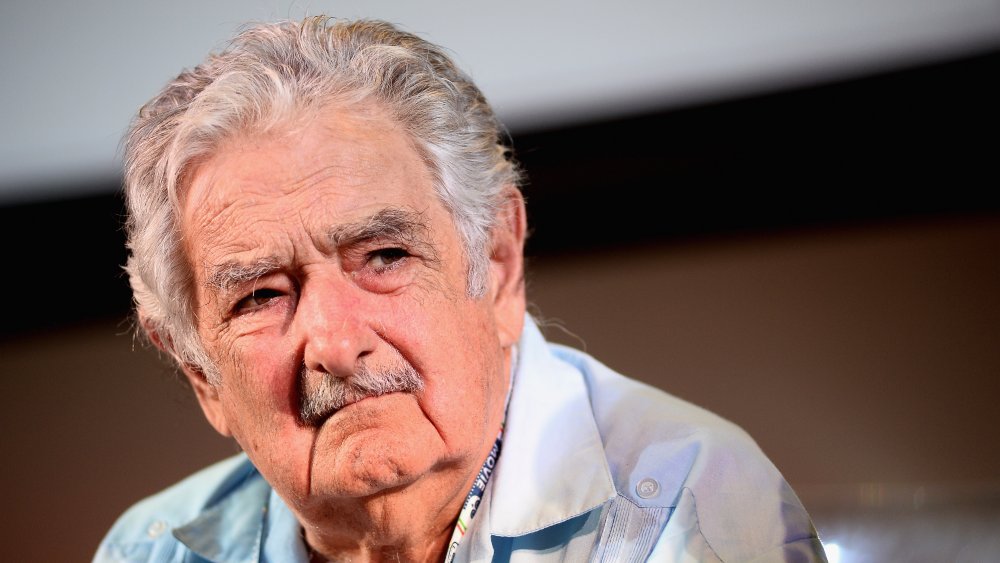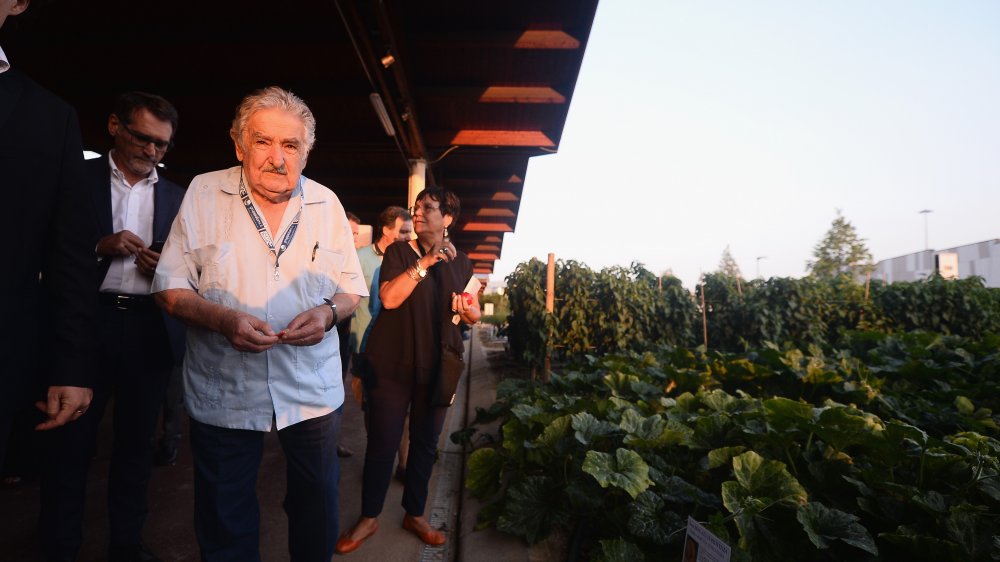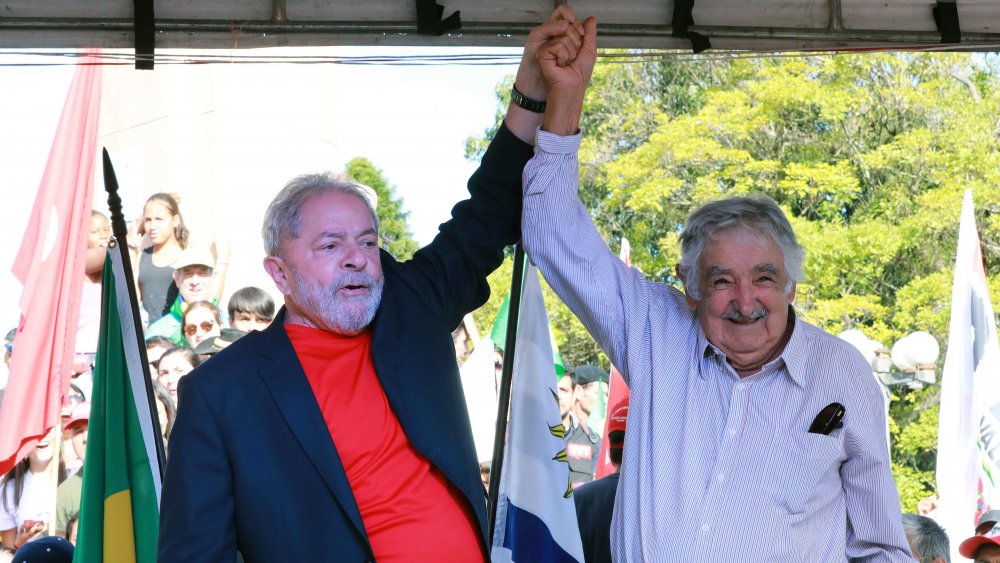The Truth About The World's Poorest President
When billionaire candy tycoon and hilariously nicknamed "Chocolate King" Petro Poroshenko won the Ukrainian presidency in 2014, CNBC rained on the parade with an article titled "Why billionaires make bad presidents." In a nutshell, a billionaire's bottom line becomes a top priority, leading to ethically questionable or outright corrupt behavior. Even without overt corruption, they've often amassed or maintained their fortunes by cutting corners, ignoring criticism, and welding almost dictatorial power over a company. Unfortunately, CNBC had a point.
Billionaire media mogul turned Italian Prime Minister Silvio Berlusconi, whom the BBC dubbed "Italy's perpetual pawnbroker," was convicted of tax fraud and accused of embezzlement and attempting to bribe a judge. Thai Prime Minister Thaksin Shinawatra entered exile to elude prosecution for corruption. Russian President Vladimir Putin rules like an autocrat. And yes, the Chocolate king became embroiled in an embezzlement scandal that prompted a political rival to accuse Poroshenko of state treason, per the Independent.
So what if a nation went in the opposite direction and elected a leader who seemed allergic to wealth? While a person's integrity isn't inherently defined by their bank account, former Uruguayan head of state Jose Mujica, dubbed "the world's poorest president," governed with a heart of gold.
A rebel with a cause
Elected as president of Uruguay in 2009, Jose Mujica wasn't a chocolate king. Nor did he treat himself to a sweet paycheck. As the BBC details, he donated 90 percent of his salary to charity, dropping his monthly income to $775 a month. That placed his earnings on par with that of the average Uruguayan. Rather than living in a lavish mansion, he was content with his "ramshackle farm." The most opulent item he owned was a 1987 Volkswagen Beetle. Even when he added his house, tractors, and half his wife's salary to the tally, Mujica was poorer than his own vice president.
Of course, Mujica didn't consider himself poor. The way he saw it, "poor people are those who only work to try to keep an expensive lifestyle, and always want more and more." His willingness to give up his wealth actually made him free, he argued. That might sound like a radical stance to some, but it's nothing compared to Mujica's radical past. In the 1960s and '70s he was a member of a group of urban guerillas called the Tupamaros. Inspired by Cuba's revolution the Tupamaros opposed Uruguay's oppressive regime, via the Encyclopedia Britannica
The guerillas committed bank robberies, abductions, and redistributed stolen food and money to the poor, per the Guardian. Mujica was shot six times by police and imprisoned for 14 years in "dungeon-like conditions" for killing a police officer. An unrepentant rebel, he escaped twice.
The world's poorest president made his country richer
Despite denying himself the pricier things in life, Jose Mujica enriched his country while serving as president. Under his leadership, Uruguay enjoyed economic growth and low unemployment rates, according to the Encyclopedia Britannica. He combatted drug cartels by crafting legislation to legalize and regulate the sale of marijuana. In 2017, the Uruguayan government built on the groundwork he laid and legalized over-the-counter sales of marijuana, via the Guardian. The news outlet Telesurtv reports that drug-related crime dropped 20 percent.
In addition, Mujica made Uruguay the second ever Latin American country to legalize same-sex marriage. The Uruguayan constitution bars presidents from serving a second consecutive term, and Mujica assumed a new role as senator in 2015, per the BBC. True to form, he refused to accept a pension when his tenure ended. He resigned in 2018, not due to corruption but rather "tiredness after a long journey."


